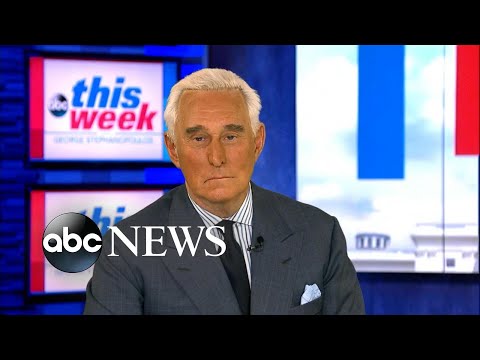WASHINGTON – News outlets and media pundits on Friday seized on a court filing in the special counsel’s case against Roger Stone that referred to communication the longtime Trump confidant had with WikiLeaks and Guccifer 2.0, the group of alleged Russian operatives suspected of stealing Democrats’ emails during the 2016 campaign.
The court filing, which was touted as new, bombshell evidence by numerous news sources, including CNN and MSNBC host Rachel Maddow, may be less than meets the anti-Trump eye.
The filing seemingly refers to communication Stone had with WikiLeaks and Guccifer 2.0, which have already been made public. Those interactions, some of which Stone has released himself, show brief and seemingly innocuous encounters with both WikiLeaks and Guccifer 2.0.
In one exchange from Oct. 13, 2016, which Stone provided to The Daily Caller on Feb. 28, 2018, WikiLeaks appeared to chastise Stone for making “false claims of association” with the group.
Nearly two years ago, on March 10, 2017, Stone released private Twitter exchanges he had with Guccifer 2.0. He contacted Guccifer 2.0 on Aug. 14, 2016 to say he was “delighted” that its Twitter account had been reinstated after a suspension, the messages Stone released show. Two days later, Stone asked for a retweet of an article he had written. None of the messages show Stone discussing emails or asking for insight into what documents would be released.
The source of Friday’s breathless reporting about purportedly explosive new evidence against Stone is a court filing special counsel Robert Mueller submitted in response to a motion from Stone seeking a new judge for his case. The longtime GOP operative was indicted on Jan. 25 on seven counts related to the House Intelligence Committee’s own Russia investigation.
Mueller & Co. designated Stone’s case as related to indictments handed down on July 13, 2018 against 12 alleged Russian operatives suspected of hacking and disseminating Democrats’ emails. By linking the cases, the judge handling the case against the Russian operatives, Amy Berman Jackson, would be able to handle the Stone matter as well.
Stone objected to that move and sought a replacement for Jackson, who is also handling a case against former Trump campaign chairman Paul Manafort.
As part of the argument to maintain Jackson as the judge for the Stone matter, prosecutors noted that cases can be designated as related if prosecution against separate defendants “arises from a common … search warrant” and from “activities which are a part of the same alleged criminal event or transaction.”
Prosecutors went on to assert that: “In the course of investigating that activity, the government obtained and executed dozens of search warrants on various accounts used to facilitate the transfer of stolen documents for release, as well as to discuss the timing and promotion of their release.”
“Several of those search warrants were executed on accounts that contained Stone’s communications with Guccifer 2.0 and with Organization 1,” they said.
“Organization 1” is believed to be WikiLeaks.
Mueller has been investigating what Stone knew about the email dumps and any communication he may have had on the matter with WikiLeaks, Guccifer 2.0, President Donald Trump’s campaign and any other associates.
Stone, 66, has insisted that he had no direct contact with WikiLeaks or any Russian operatives, save for his Twitter exchanges.
Stone is accused of lying to the committee about his contacts with associates and Trump campaign officials regarding WikiLeaks. Stone has not been accused of communicating with WikiLeaks or Guccifer 2.0 regarding the hacking or release of Democrats’ emails. He was also not charged with lying to Congress when he denied having those communications.
Stone has claimed that he did not know the source of content of the final WikiLeaks dump until the group began releasing former Clinton campaign chairman John Podesta’s emails. Stone has said he learned through left-wing activist Randy Credico that WikiLeaks would release materials that would be damaging to former Secretary of State Hillary Clinton’s campaign.
Text messages show that Credico, who is friends with a WikiLeaks lawyer, kept Stone apprised of WikiLeaks’ timeline for releasing Clinton-related documents.
Though Mueller’s filing appeared to refer to previously reported correspondence from Stone, numerous news outlets spun the filing as new, explosive evidence of possible collusion with WikiLeaks and Russian spies.
Maddow asserted on her show Friday night that Mueller’s filing revealed that Stone had contact with Russian operatives “concerning the stolen Democratic documents that the Russians hacked and staged for distribution during the campaign in a way that was designed to cause maximum damage to Hillary Clinton and maximum benefit to Donald Trump.”
Preet Bharara, a former U.S. attorney turned CNN analyst, proclaimed the story a “significant development.”
Evan McMullin, a leader of the anti-Trump resistance movement and frequent cable TV guest, claimed, without evidence, that Mueller’s filing established that Stone “was in direct contact with WikiLeaks and Russian intel” regarding “the timing and promotion of stolen emails.”
CNN reported the story with the headline “Special counsel prosecutors say they have communications of Stone with Wikileaks.”
Stone responded to the CNN story on his Instagram account, calling the headline a “[t]otal con job and old recycled smear.”
“The Mueller investigation looked for two years and can find nothing but recycle Twitter direct messages which have already been widely reported in the media and which prove absolutely nothing,” he wrote.




Comments are closed.